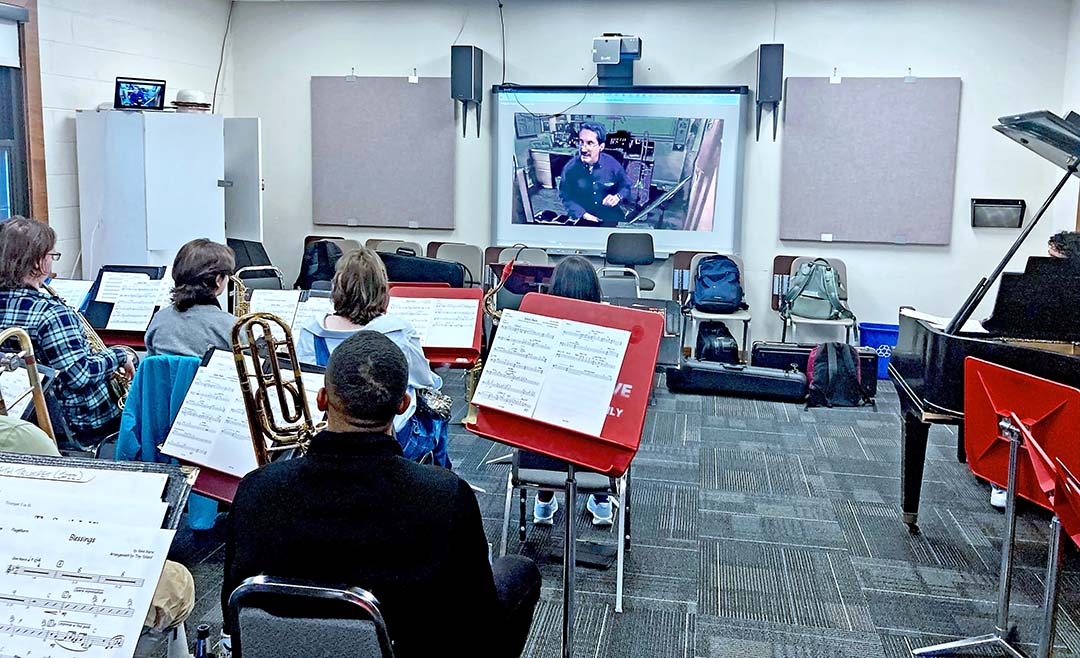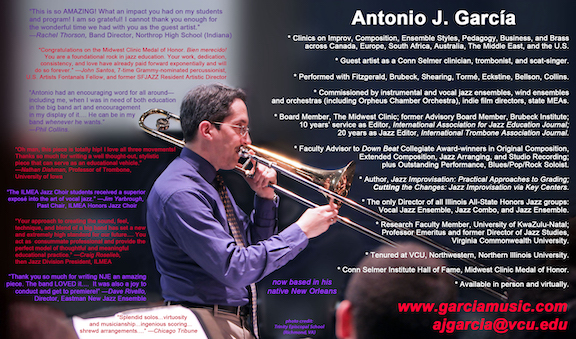"'Everyone involved felt strongly that the educational component was the foremost consideration; so the first aspect we addressed was securing a clinician. In my opinion, a quality clinician is the crucial piece of the festival. We wanted an individual who was an excellent jazz musician, readily capable of demonstrating concepts via his/her own playing and/or singing. It was equally important that this individual be a gifted jazz educator, able to communicate clearly, and experienced with high school musicians and the challenges that they typically face in performing jazz. Since we decided to have a single clinician for our festival, it was important that this person be adept at addressing aspects across the entire ensemble: rhythm section, each horn section, soloists, and singers. Lastly, we wanted someone whose manner would help create a relaxed yet productive atmosphere in the clinics. We're fortunate that our clinician, Antonio García (Director of Jazz Studies at Virginia Commonwealth University), possesses all of these qualities in abundance. Most festivals bring in multiple clinicians or a new face each year. While not advocating against those ideas, I must note that Mr. García has been our sole clinician every year. The consensus among our participating directors—especially those who have attended multiple times—is that his consistent presence is one of the most appealing aspects of our festival."
Brian Rollins,
"The Titan Jazz & Art Festival: A Model for Others, Part I" by Brian Rollins, JAZZed, Vol. 11, No. 6. |












